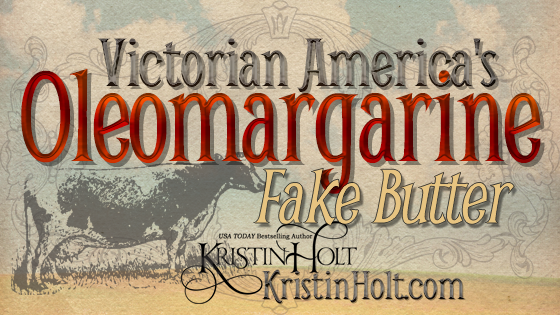
Victorian America’s Oleomargarine
Oleomargarine–a Victorian invention?
Yes! But why? And how?

Oleomargarine–a Victorian invention?
Yes! But why? And how?
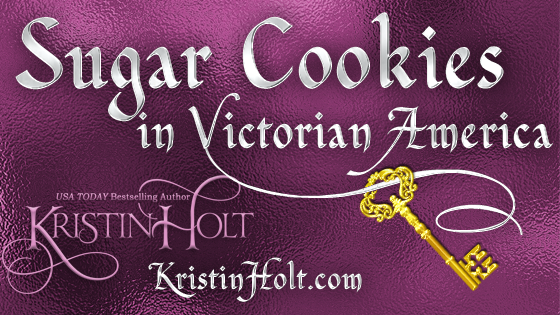
As today (July 9) is National Sugar Cookie Day, it’s a perfect opportunity to celebrate Sugar Cookies in Victorian America. Everything from sugar cookie history in a nutshell to images of vintage cookie cutters, nineteenth century recipes lifted from vintage newspapers and cookbooks (cook books = more accurate spelling). Indulge in a bit of sweet history with me. Pull up a chair and let me pour tea while we sit and visit awhile. You simply must try my special (modern) and scrumptious soft sugar cookie recipe (downloadable, savable, printable PDF).
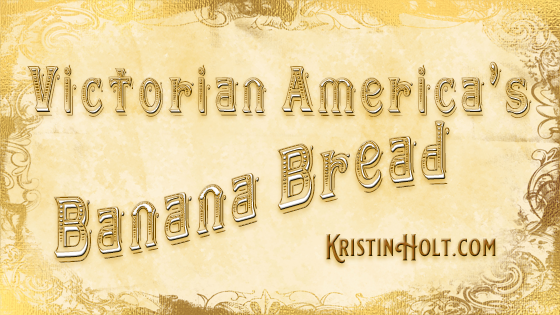
Today, February 23, is National Banana Bread Day. While banana bread (as we now know it) became a staple among home bakers in the 1930s, banana bread had its start in the late Victorian era where “banana flour” came to the United States from the tropics. Vintage newspaper advertisements show the beginnings of banana bread available in bakeries and homemakers’ awareness of quality nutrition to be found in the imported fruit and “flour.” With or without nuts, banana bread is a hallmark of American quick breads… and our nineteenth century ancestors, complete with baking powder and a wealth of cake-baking knowledge, were prepared for the post-Great Depression’s urge to “use it up.”
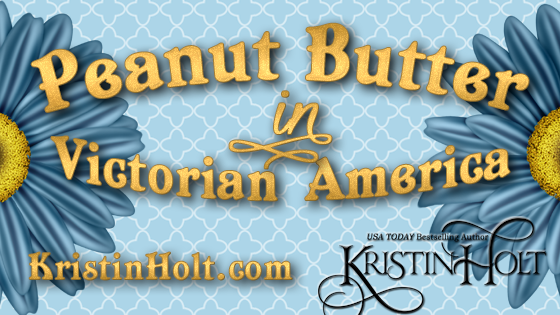
Today, January 24th, is the United States’ National Peanut Butter Day. On March 1st, calendars declare the day National Peanut Butter Lover’s Day.
Who first invented peanut butter? Doctors worried about elderly patients’ nutrition, right? Sometime in the nineteenth century?
Uh, no. Not exactly.
But peanut butter–an “All American” spread–was enjoyed by our Victorian-American ancestors. Read vintage articles instructing knowledgeable housewives of the many dietary uses of the peanut, vintage recipes instructing the proper making of “peanut paste”, the inclusion of pulverized peanut (paste, flour, finely chopped), and ultimately, advertised brands to buy at their grocers’ markets.
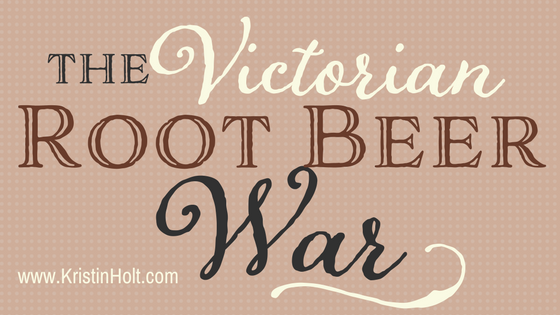
Hires Root Beer, from its debut in the mid-1870s, was sold as a refreshing beverage (with no medicinal expectations). The name, chosen by Charles H. Hires, to appeal to tough coal miners, who’d never find “root tea” attractive, ended up causing Hires Co. a bit of trouble with Women’s Christian Temperance Union (WCTU). Who knew that “beer” in a name, and the common knowledge that root beer extract was percolated with alcohol (though the finished drink had no more than a whole loaf of homemade bread), to cause banning of the beverage?